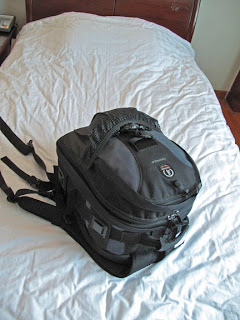Nikon D300s–kindly loaned by Pro Photo Supply, Portland, OR–provided HD video and back up the D3. How did it do?
Video: While it took me a bit to figure out how to shoot HD video–probably would have helped to read the manual–it was fun. Surprisingly, because of its inconspicuous size, I ended up using it quite a bit for candid photography both on city streets and in the vineyards. Fun and easy for a D3 user to figure out the cockpit controls.
memory cards: I"m not sure why, but Nikon decided to make two different slots for memory cards, one for CF (compact flash) the other for SD. Two slots are a good idea for overflow of data from first card. But two different types of cards a bit confusing for me. I like the two slots just in case one becomes unusable–like bent pin.

One night at the "Disneyland" Chateau of Chinese Wineries we had a BBQ dinner outside while being filmed by a TV crew. This photo of the event is taken with the D300 S with ISO 200 (Sorry, I'm still stuck in the Paleolithic days of keeping the ISO low) with a 6 second exposure.
Cannon G10 humbled me. I use the camera to take quick 14.7-megapixel snaps, especially when I want others to snap me. Unfortunately, about a week and half into the trip, the Live-View function went dead. “Darn cheap Cannon,” I thought. “My Nikons didn’t go down.” So I used the inconvenient viewfinder to frame the photos for the last week.
Here comes the humble pie part. On the flight home I complained to the Chinese lady sitting next to me that the G10 was broken. No Live View. She points to a button on the camera back labeled “DISP.” It turns the Live View feature on and off. (“DISP." must be short for disappear.) I hope she didn’t see my face turn red. XieXie (Thank you in Chinese.) It seems she had a similar experience with her small Cannon camera. I didn’t bother to tell her I was a professional photographer.
Nikon D3 is my dependable workhorse. In the last year or so, that battle ax has been to Africa, China–two times, Chile and hundreds of commercial situations. I’ve printed 30X40 prints from it’s files-resed up a bit.

















































